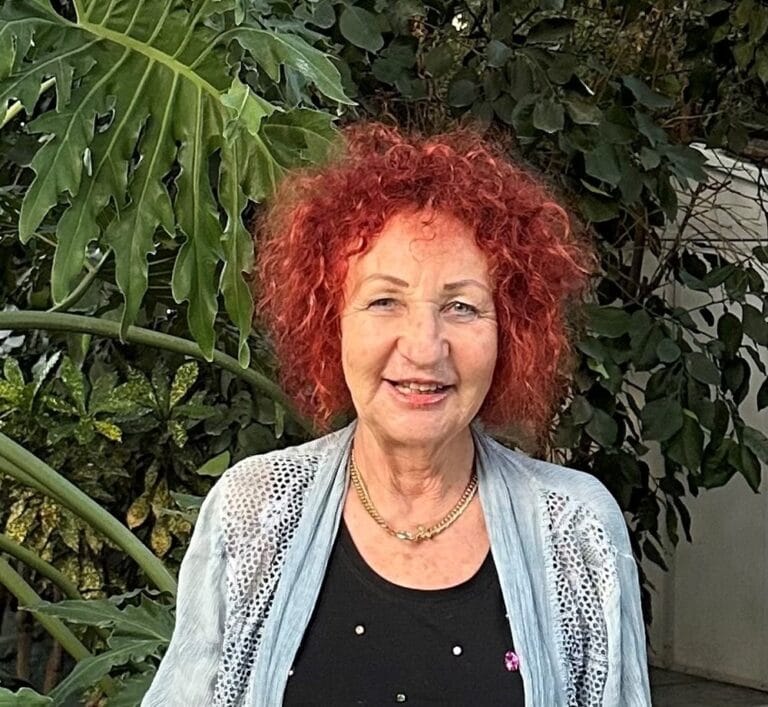Prof. Tammie Ronen is a positive psychology expert from Tel Aviv University. A few years ago, she shared with ISRAEL21c her top tips for mental wellbeing during the Covid pandemic.
Now, as Israelis face war and Jewish communities around the world face waves of anti-Semitism, we asked Ronen how we, and anyone else under pressure, can take care of ourselves during difficult times.
“Let’s start off differentiating between fear and anxiety,” she tells ISRAEL21c.
“Fear is not a bad thing. It’s a good thing whose role is to help us and protect us. If we didn’t feel fear during war, for example, we wouldn’t drop everything and go inside shelters when we need to,” she notes.
“Anxiety, however, is something else. It’s not concrete and isn’t related to a specific stimulus, but instead widens and overwhelms. I’m scared of rockets and that’s okay, but when it widens, I become worried about leaving the house altogether. It overwhelms us beyond the issue at hand,” she explains.
“What we need to do is to reduce anxiety and return fear to this place where it can protect us. We can’t erase it, but need to learn how to live with it.”
How to live with fear

Ronen suggests trying different techniques proven to be helpful in tackling fear and anxiety. However, she adds, each of us knows what’s best for ourselves.
“This isn’t some cake recipe that instructs us to do this or that,” she says. “Instead, we can say, ‘Many people find this or that helpful. If it helps you, go for it, and if not, forget about it.’”
The techniques can be divided into three categories: one is the body-soul connection, the second has to do with positive thinking and the third relates to activity.
In the body-soul category, Ronen notes how fear and stress cause physical tension. To help ease this tension, she recommends breathwork and making sure we’re getting enough oxygen.
“There are many different breathing techniques, mindfulness exercises, deep muscle relaxation, meditation – all techniques meant to release your body and enable you to breathe well,” she says. “Different people prefer different techniques.”
The second category acknowledges that positive yet realistic thinking can help us overcome stressful situations.
“What scares us is being frightened of fear, rather than the fear itself,” Ronen explains. “The issue is thinking that something is scary and that I won’t be able to deal with it. We expect catastrophe to happen, and that’s why the ensuing negative thoughts really amplify dysfunction.”
While we can’t lie to ourselves that things aren’t scary, we can try telling ourselves, “I’ve been scared in the past and I managed to deal with it,” or “I’m strong and capable” or “This is difficult, but it will soon be over.”
“Once we think in a positive but realistic way about our strengths and our self-value, we produce positive feelings and we react to things differently,” Ronen says.
What to do and not to do
In terms of activity, we should strive to maintain routine.
“The more we maintain routine, the better. This means waking up at normal hours, even if we’re not working, making sure we’re eating fixed meals, sleeping, showering. This is because routine really helps us feel safe,” she explains.
“We’re all experiencing symptoms of some kind at the moment – one person isn’t sleeping, while another isn’t eating or suffering from stomach aches and nausea. If I don’t have much of an appetite or I’m feeling nauseous, I shouldn’t not eat. Instead, I should think what sort of food I’d find easier to deal with right now.”
Another positive activity is relaxation.
If your way of relaxing is going for a run and right now you can’t run long distances, try running closer to home. If it’s reading that relaxes you and you find it difficult to concentrate these days, choose lighter reading material. Or take your mind off things with light entertainment shows.
Positive goals
Set yourself positive goals, Ronen suggests.
“In difficult times, I always imagine positive things, even if it’s fantasy. For example, I’m planning in my head future trips, what I’ll be doing when the war is over, and travel in my mind for a brief five minutes. It gives me purpose, and purpose is a very important thing.”
Doing something meaningful also helps wellbeing.
“In times of natural disasters or manmade disasters like war, volunteering is very meaningful. When I help others, it gives me a lot of meaning. It keeps me busy, which is great, since it stops me from thinking about the war the whole time, and it also gives me meaning in the sense that I managed to help someone else.”
Ronen notes that Israeli volunteers have been helping in so many ways, such as lending a hand on farms, cooking food, organizing equipment and much more.
“This willingness to help others is excellent in itself, but it can also help us. When we feel we have the ability to do something for someone else, it helps us deal better with the situation.”
Ronen adds that we all need a support system, but we need to choose those individuals carefully.
“There are people who are anxious and who will only bring us down. We need people who can cheer us up and make us happy. Support from friends and family is wonderful, but we need to be careful and check with whom it’s pleasant for us to talk.”
Turn off the news
As for activities to avoid, Ronen is a firm advocate of not overconsuming news.
“During these times of war, we’re glued to our televisions, watching the news. Research I did in previous wars showed that information is good at a certain level, since information makes us feel secure. But too much information is stressful.”
“How much information is too much information, of course, changes with age. Children need less information, while adults require more, but we mustn’t consume too much. We need to learn how much information we personally need,” she says.
Ronen watches the news when she gets up in the morning and once again in the evening. “I check the news during the day only if I’m at home and there were siren alerts and I want to hear what happened in a concrete way.”
When to seek help
How can we recognize when overwhelming feelings of fear or anxiety in this war situation require intervention?
“It’s normal to be scared and it’s normal to be experiencing symptoms. It’s normal when someone is hesitant to go outside, or finds it difficult to eat or sleep,” she explains.
“It starts becoming a problem when it begins to impair our function in an extended way.
“For example, I feel very safe at home, but I must admit that I feel less safe while driving. So I don’t really feel up to driving to faraway friends, but I am still driving to do my shopping or to visit my parents. So perhaps I’m driving less late at night, but I haven’t completely stopped driving,” she shares.
Similarly, if difficulty sleeping gets to the point where a person feels physically exhausted for days on end, it might be a good idea to call the doctor, she says.
“Being scared and overcoming it is fine. But when I stop functioning, close off, stop meeting people, or lose a lot of weight – these are all signs that we should consult with a family doctor.”

















